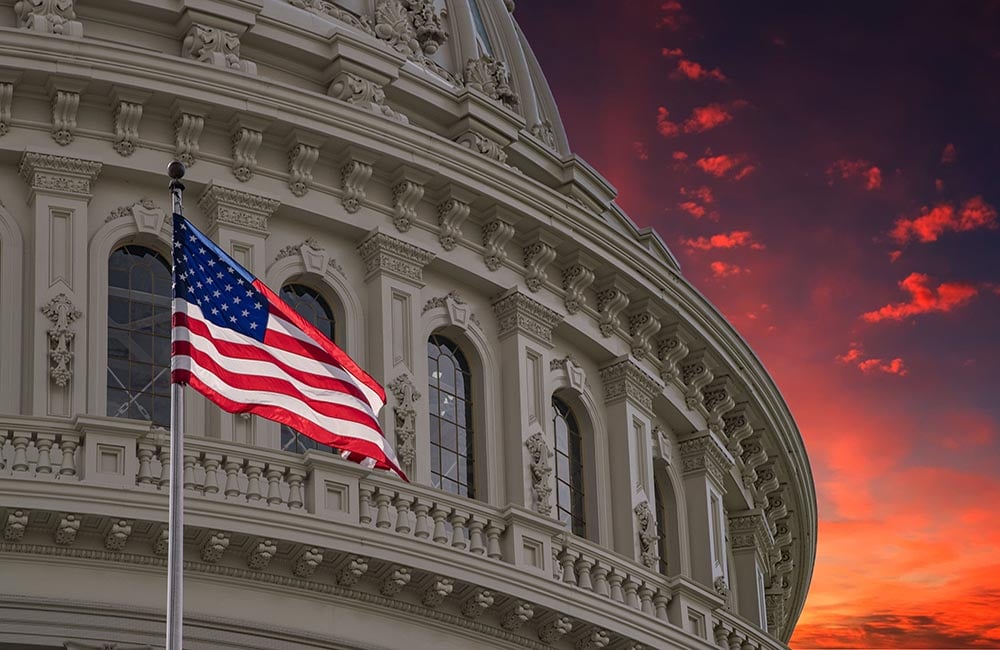The Canadian Snowbird Visa Act
Canadians love visiting the United States in record numbers every year despite a weakening Canadian dollar. Many of them are retirees looking to escape the cold Canadian winter flocking to warm southern states like Florida and Arizona for months at a time from October to May. Many would love to stay longer if not for numerous consequences including U.S. Immigration laws, IRS taxation, and possible loss of Canadian healthcare insurance.
The Stats
In 2018, over 79.7 million international visitors entered the United States. Canada accounted for the most with over 21.4 million visitors while spending over 18.1 billion U.S. dollars on travel and tourism in the United States. Approximately 500,000 Canadians spend up to the maximum 6 months allowed in the U.S. each year with 80% of those owning their own property.
With all the money Canadians pour into the U.S. tourism economy, the U.S. government has taken notice. Letting Canadians stay longer means more business for restaurants, retail stores and attractions. The U.S. House and Senate have each proposed bills to allow Canadians to stay longer.
The Proposal
Currently, Canadian citizens can stay in the U.S. for up to 6 months in a year as a visitor. For the past two years, there has been a bipartisan push to extend the time Canadians over age 50 can spend in the United States from six months to eight months without facing tax consequences from the IRS.
Two slightly differing versions of essentially the same legislation have been introduced in each chamber. The House version, the Canadian Snowbirds Visa Act, was introduced on June 12, 2019 as bill number H.R. 3241, by Rep. Elise Stefanik (R-NY21). The Senate version, the Canadian Snowbirds Act, was introduced three months later on September 18, 2019 as bill number S. 2507, by Sen. Marco Rubio (R-FL).
If Passed
If passed into law, the legislation would allow Canadians who are over age 50 and own or rent a property in the U.S. to visit the U.S. for up to eight months without tax consequences. The legislation would specifically prohibit such Canadians from either working for an American employer or receiving any form of public assistance such as food stamps or housing vouchers paid for by American taxpayers.
Challenges
Canadian snowbirds face challenges besides Washington politics. If they stay in the United States longer than six months, they are at risk of losing their Canadian government healthcare coverage. Most provinces have now extended the cut-off to seven months, and many groups are lobbying provinces to further extend the period to eight months.
Odds of Approval
Even with bipartisan support, the Snowbirds Act could face an uphill battle in Washington. Politicians are hesitant to pass anything that could be perceived as weakening the nation’s immigration laws. Immigration related bills, even those with broad support, haven’t been moving forward.
The House version has attracted 19 bipartisan co-sponsors, 10 Democrats and 9 Republicans. It awaits a potential vote in either the House Judiciary or Ways and Means Committee. In theory, the bill’s bipartisan co-sponsorship would make it likely for passage. However, a previous July 2017 version attracted an even larger 40 bipartisan co-sponsors, 21 Republicans and 19 Democrats but never received a vote.
The Senate version has attracted just 1 Republican co-sponsor and awaits a potential vote in the Senate Finance Committee. A previous July 2018 version attracted a Democratic and Republican co-sponsor each, but never received a vote.
Updates
If you would like to track these bills, you can visit the U.S. Congress website to watch the progress of each bill here:
https://www.congress.gov/bill/116th-congress/senate-bill/2507
https://www.congress.gov/bill/116th-congress/house-bill/3241

